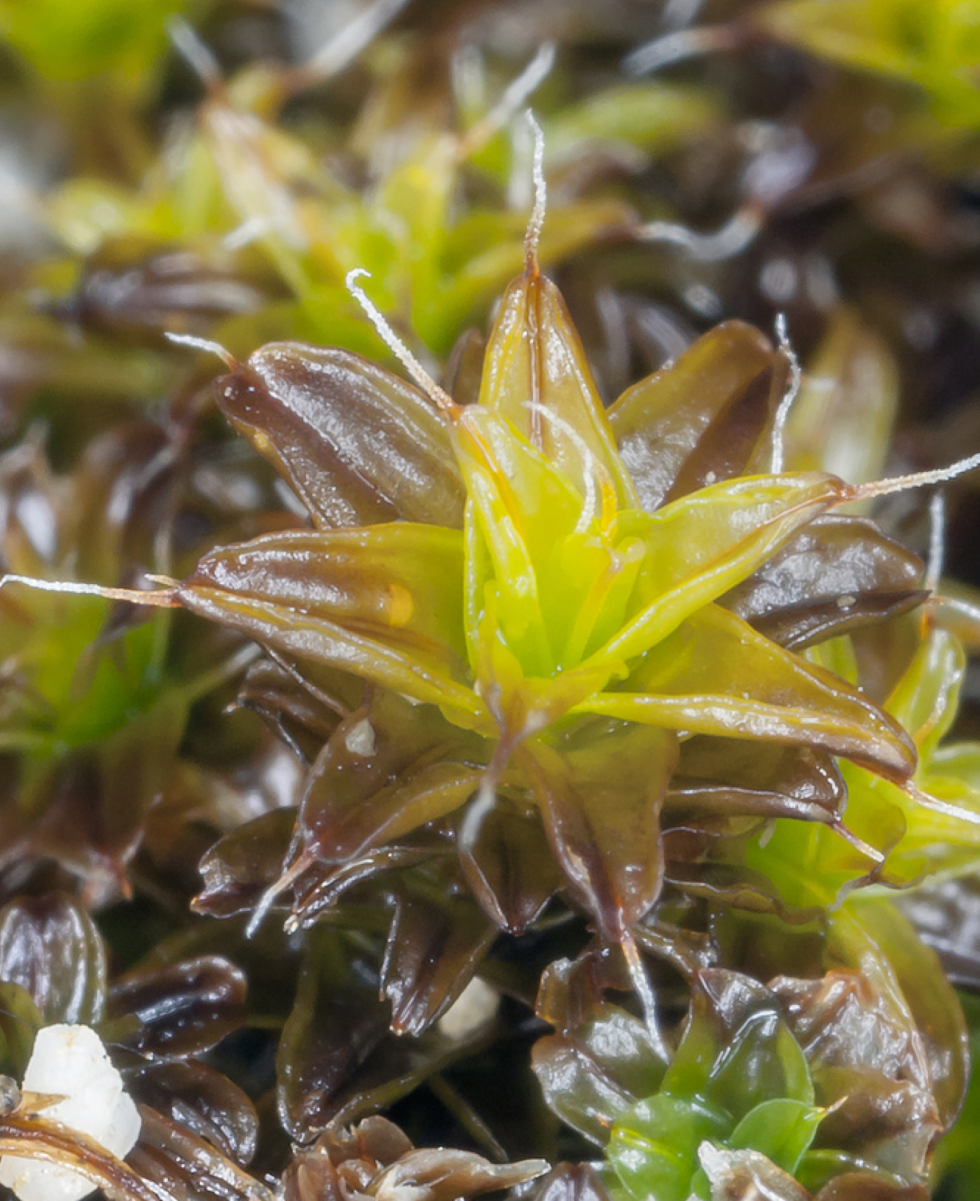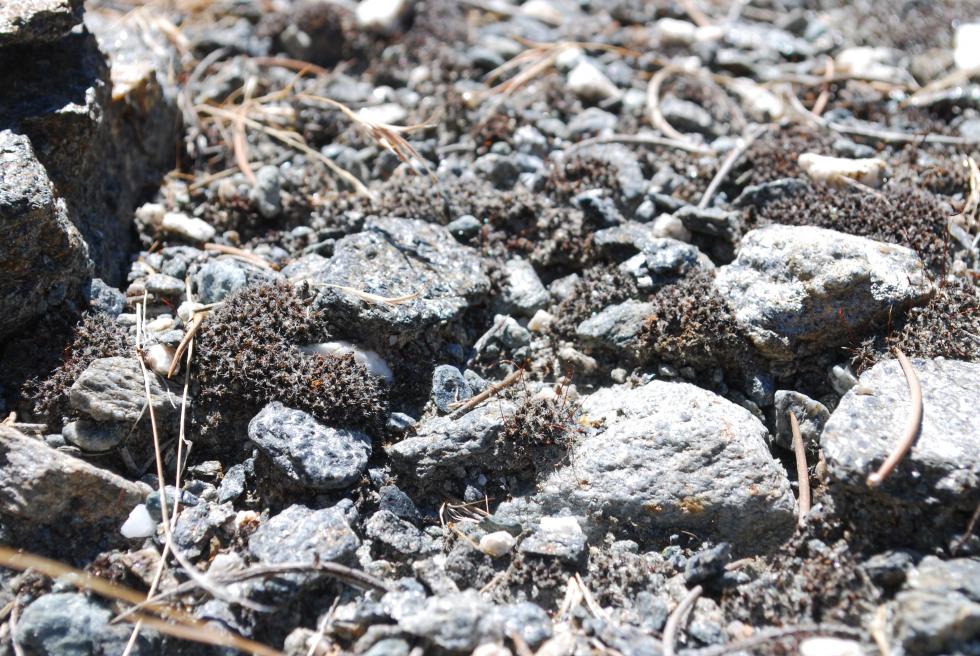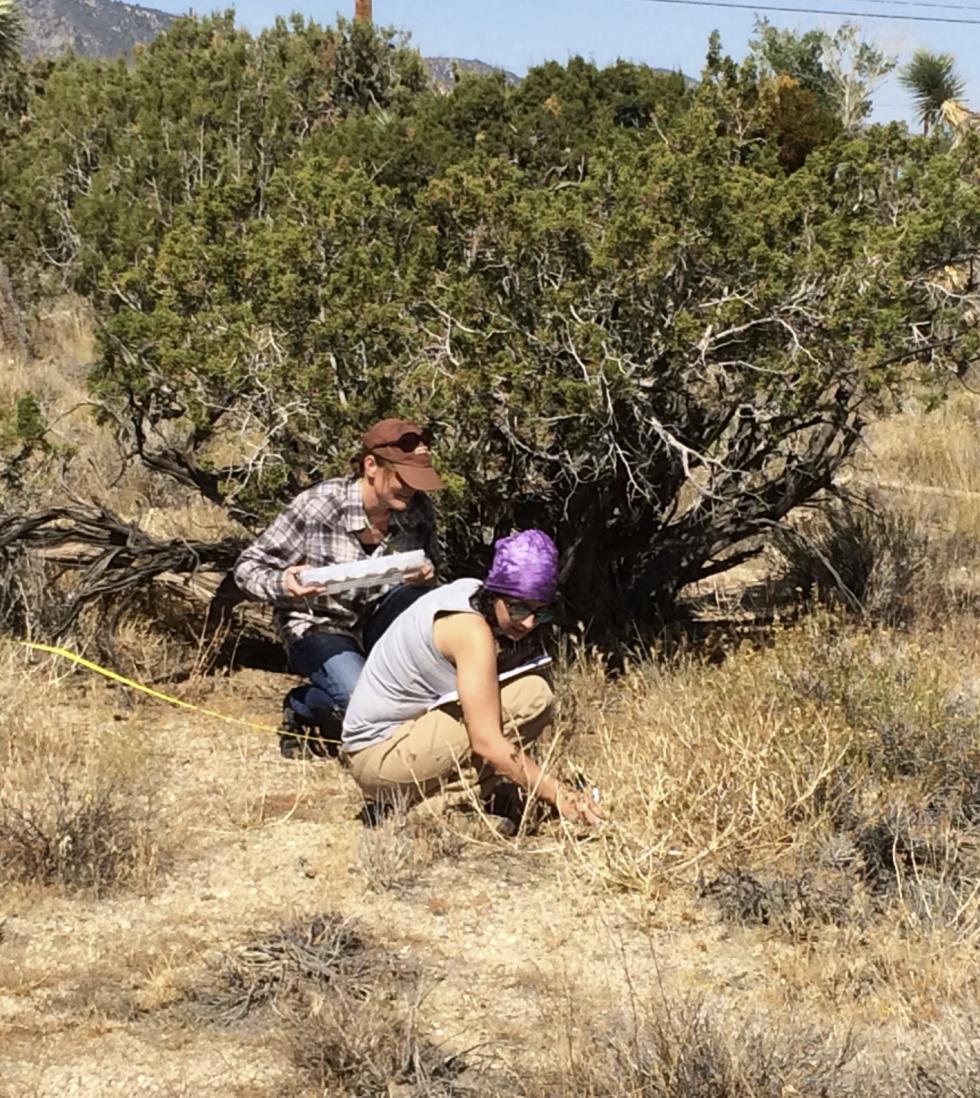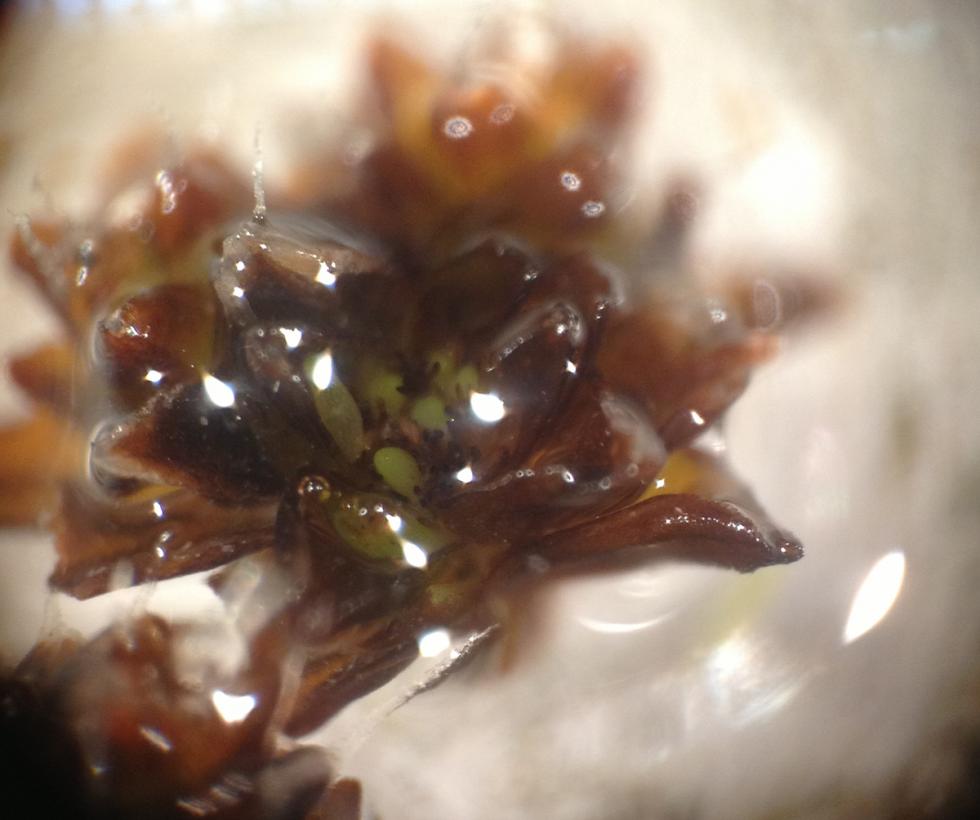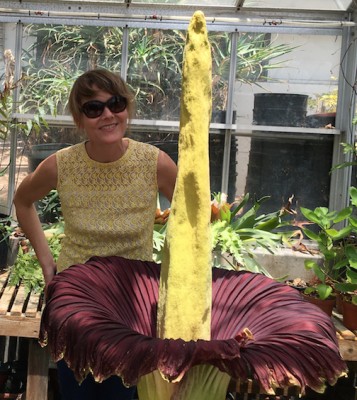
RESEARCH
My lab's research program focuses on the ecology and evolution of plants in extreme environments. We address questions such as: How does adaptation to extreme environments influence trade-offs in allocation of energy to growth, reproduction, and physiological tolerance? And, how do these trade-offs influence genetic diversity? To address these questions, my lab studies population genetics and reproductive ecology in the desert moss, Syntrichia caninervis, which is highly tolerant of stress and desiccation, and also has the most skewed sex ratios known of any plant species. Because it is essentially an aquatic plant growing in the desert, this moss spends the majority of its life in a desiccated state of suspended animation, awaiting brief interludes of moisture from infrequent rains.
TEACHING
I teach classes in ecology, evolution, science communication, and plant diversity. Here are some of the courses I teach fairly regularly:
BIOL 1010 - General Biology
BIOL 3200 - Professional Writing in the Life Sciences
BIOL 4400 - Plant Systematics
BIOL 4500 - Botanical Medicine
STUDENTS
I am always happy to speak with students interested in doing undergraduate or Master's research in my lab. Please take some time to review one or two of my representative publications (listed below) prior to getting in touch with me, so that we can better discuss your research interests and possible projects.
Current MS Students:
DeDe Dornisch - ENVS MS program
Alumni:
Simone Benjamin (MS Environmental Science, 2020)
Ugbad Farah (MS Environmental Science, 2020) - PhD program, UC San Diego
Alexandra Garcia (MS Biology, 2018)
Jameka Jefferson (MS Biology, 2018)
Israel Jimenez (MS Biology, 2016) - PhD program, UC Riverside
Jenna Baughman (MS Environmental Science, 2015) - PhD candidate, UC Berkeley
Tigran Panasyan (MS Biology, 2015)
Stephanie Macias (MS Biology, 2014)
Jennifer Rodriguez (MS Biology, 2014) - PhD program, Rancho Santa Ana Botanical Garden
Amber Paasch (MS Biology, 2013) - PhD, 2017 from the Richard Gilder Graduate School, American Museum of Natural History
Aishwarya Santhanam (MS Biology, 2012)
Tanisha Williams (MS Environmental Science, 2012) - PhD candidate and Fullbright Scholar, University of Connecticut
Janet Sanchez (MS Biology, 2012)
PUBLICATIONS
Ekwealor, J.B., and K. Fisher. 2020. Life under quartz: Hypolithic mosses in the Mojave Desert. PLOS ONE 15(7): e0235928.
Yost, J.M., et al. 2020. The California Phenology Collections Network: Using digital images to investigate phenological change in a biodiversity hotspot. Madroño. 66(4):130-141.
Fisher, K., Jefferson, J.S., and P. Vaishampayan. 2020. Bacterial communities of Mojave Desert biological soil crusts are shaped by dominant photoautotrophs and the presence of hypolithic niches. Frontiers in Ecology and Evolution 7: 518
Baughman, J.T., Payton, A.C., Paasch, A.E., Fisher, K., and S.F. McDaniel. 2017. Multiple factors influence population sex ratios in the Mojave Desert moss Syntrichia caninervis (Pottiaceae). American Journal of Botany 104: 733-742
Fisher, K., Kouyoumdjian, C., Roy, B., Talavera-Bustillos, V., and M. Willard. 2016. Building a culture of transparency. AAC&U Peer Review 18: 8-11
Paasch, A.E., Fisher, K., Mishler, B.D., and L.R. Stark. 2015. Decoupling of sexual reproduction and genetic diversity in the female-biased Mojave Desert moss Syntrichia caninervis (Pottiaceae). International Journal of Plant Sciences 176: 751-761
Bassett, C., K. Fisher, and R.E. Farrell Jr. 2015. The complete peach dehydrin family: characterization of three recently recognized genes. Tree Genetics and Genomes 11:126
Fisher, K. 2011. Sex on the edge: reproductive patterns across the geographic range of the Syrrhopodon involutus (Calymperaceae) complex. The Bryologist 114: 674-685.
Fisher, K. 2008. Bayesian reconstruction of ancestral gene expression in the LEA families reveals propagule-derived desiccation tolerance in resurrection plants. American Journal of Botany 95(4): 506-515.
Fisher, K., D.P. Wall, K. L. Yip, and B.D. Mishler. 2007. Phylogeny of the Calymperaceae, with a rank-free systematic treatment. The Bryologist 110(1): 43-73.
Fisher, K. 2006. Rank-free monography: a practical example from the moss clade Leucophanella. Systematic Botany 31: 13-30.
La Farge, C., B.D. Mishler, J.A. Wheeler, D.P. Wall, K. Johannes, S. Schaffer, and A.J. Shaw. 2000. Phylogenetic relationships of the Haplolepideous mosses. The Bryologist 103(2): 257-276.
BIO
I spent my formative years playing in creeks and ditches in northern California, where I learned to appreciate small, growing things. I earned my undergraduate degree in Biology at UC Santa Cruz, and after a couple of years of varied employment as a gardener, bakery cashier, and bank teller, decided to pursue graduate education. I was wooed into the world of mosses by Brent Mishler at UC Berkeley, who served as my PhD advisor and provided me with the opportunity to study the systematics of a tropical moss family, Calymperaceae. After earning my PhD, I did a postdoctoral fellowship at the National Evolutionary Synthesis Center in Durham, NC, where I learned to appreciate barbeque and California weather. I returned to California in 2008 to join the faculty in the Department of Biological Sciences at Cal State LA, where I am now a Professor.
